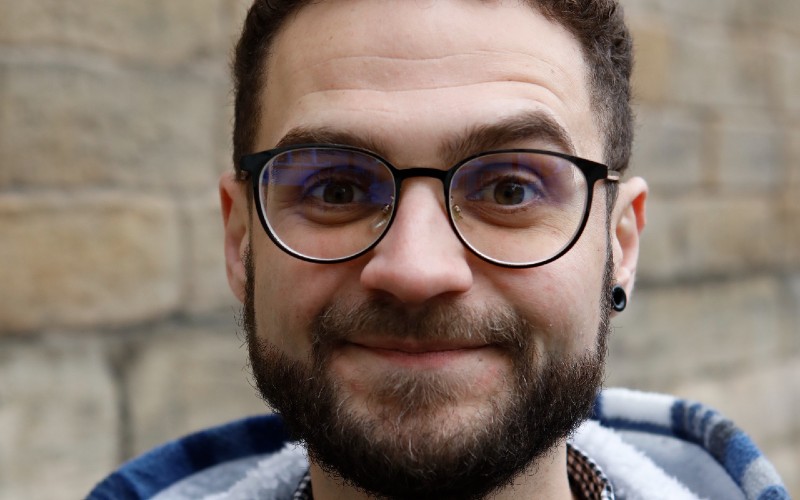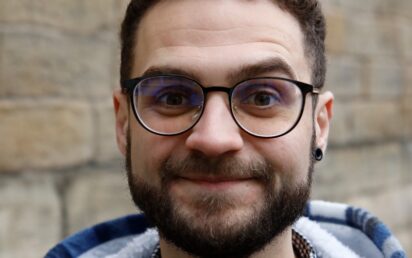Liam Brennan always felt different.
Even during his long career in Manchester’s tech sector, which included 12 years at UKFast and a spell as lead hosting engineer at THG, he knew he wasn’t the same as his colleagues – but didn’t know why.
He said: “I had this relentless fidgeting energy, a ceaseless bout of insomnia and an ever-present sense of difference – these were my silent battles.
“While the world hummed at one frequency, my rhythm and vibrations were seemingly out of sync.”
During the pandemic the loss of routine triggered a spiral of depression, isolation and a profound sense of loss – and he knew he had to do something.
At the age of 32 he embarked on a journey that eventually saw him diagnosed with ADHD and autism – and suddenly everything made sense.
“Having my autism and ADHD officially observed and ‘labelled’, allowed me to truly see myself,” he explained.
Brennan is one of a growing number of adults being diagnosed with ADHD and autism and has launched his own business to raise awareness of what it’s like to be neurodivergent.
Through his company – Left Foot Forward – he works as a technical performance coach and innovation consultant, teaching individuals and teams about mindset and growth and taking away the stigma of neurodiversity.
Brennan’s own story began in Bolton, where his mum raised over 65 foster children.
“I always knew I was different from the rest of the world without knowing why,” he said. “I felt out of step with everyone else. By the time I was in my 20s, my life felt like a façade.”
In 2008 he got a job as a technician at UKFast, before leaving after 12 years in 2020 for a role as a lead hosting engineer at THG.
“I had helped eCommerce giants, universities, governments and individuals to make the best use of cutting-edge technology,” he said.
“I pushed myself to the breaking point consistently but often failed to prepare the same soft landing for myself that I had so easily provided for others.
“I’m a care-giver and a solution-provider. I see things in an instant that others only discover after implementing ill-considered ideals.
“My partner calls this my ‘super-power’, but until I was able to articulate why, I often felt this to be a curse.”
Although he was able to function at work, his mental health took a turn for the worst during Covid.
“A lot of things came at once,” he said. “The pandemic changed my routine. I had this constant feeling of being different to my peers but then a friend committed suicide and that changed everything.
“At 32, I embarked on a costly and exhausting diagnostic journey, one necessitated by my declining mental health.
“I was diagnosed with ADHD and eventually autism when I was 34 and this brought a profound clarity to me and was worth its weight in gold.
“It enabled me to make better sense of my own self-worth and explain my neurodivergent behaviours to others, so that I could embrace my potential and understand more about my motivators, failures and my successes.
“However, with understanding came new challenges. There’s a pervasive stigma attached to the neurodivergent. Some see ADHD and autism and immediately think ‘incapable’, ‘distractible’, ‘disabled’, or ‘lazy’,”
Brennan realised a lot of other people were experiencing the same things as him so he launched his business – Left Foot Forward.
Through his business he provides one-to-one coaching, practical IT support, and group training sessions on a range of topics to remove inefficiencies and save businesses money.
Because of his own experiences he wants to remove the stigma around being neurodivergent.
Neurodivergent is a non-medical term that describes people whose brains develop or works differently for some reason, meaning they have different strengths and struggles from people whose brains develop or work more typically.
“Being neurodivergent makes me stand out,” he said. “But for many businesses, the blueprint hasn’t evolved enough yet to comfortably accommodate neurodivergent employees.
“A person’s neurodivergence doesn’t define their potential; it shapes our perspective and allows us to provide alternative purpose, or room for new ideas to flourish.
“I want my story to inspire other people who are living with ADHD, autism and other conditions without realising.
“I’ve constructed a method of living tailored to my rhythm, one which allows creativity and ideas to flourish.
“I’ve found time to think and I have also found focus on the things that I’ve felt were important. I’ve found clarity and most importantly, I’ve found hope.
“I haven’t cracked the code completely just yet and whilst things aren’t perfect, I hope I can serve as a beacon for others on a similar journey.”


